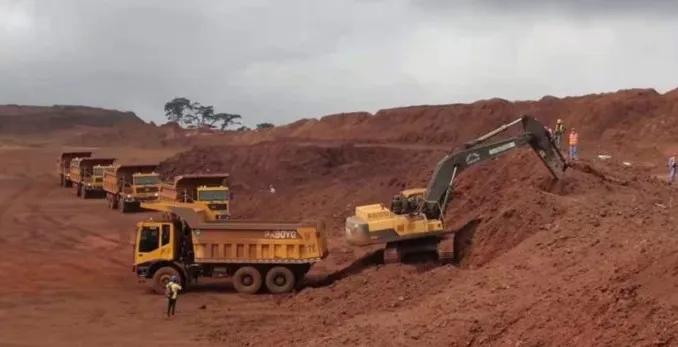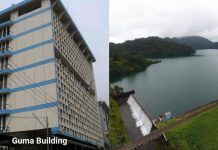
Africa-Press – Sierra-Leone. A new report published by the World Bank yesterday in Freetown, says that Sierra Leone’s real GDP growth is projected to average 4.4 percent during 2022-24, with contributions from mining and agriculture, and a partial recovery in tourism and manufacturing.
However, the growth outlook faces significant downside risks and uncertainties due to the war in Ukraine, global inflationary pressures, and the continued threat of COVID outbreaks, according to the new World Bank Sierra Leone Economic Update. Headline inflation is expected to remain elevated in 2022 due to ongoing global supply-chain disruptions.
Pre-COVID fiscal gains have been since reversed with emerging expenditure needs and revenue shortfalls. The COVID-19 shock disrupted the fiscal consolidation momentum of previous years and prompted the authorities to provide support through fiscal stimulus, including social transfers.
The fiscal deficit has since increased by 2.6 percentage points of GDP (to 5.8 percent) in 2020 and 5.9 percent in 2021. While total expenditures have increased, revenue collections have registered some gains in 2021 in part due to one-time mining revenues and stricter enforcement of tax laws.
Public debt has continued to rise and approached 79 percent of GDP in 2021, reflecting persistent fiscal deficits, currency depreciation, and limited access to concessional sources of financing.
The report recommends that prudent fiscal management will be crucial to strike a balance between the emerging expenditure needs and limited fiscal space. The authors also highlight the need for the government to access only concessional sources of borrowing and financing to address its debt vulnerabilities and manage its risk of debt distress.
“Sustained fiscal adjustment and active debt management can support debt sustainability and reduce vulnerabilities. Reduction in domestic borrowing needs will also free up more credit for the private sector,” said Abdu Muwonge, World Bank Country Manager for Sierra Leone. “However, it is a welcome development that Sierra Leone’s economy is slowly recovering and is projected to average 4.4 percent growth in the medium-term. Improving and sustaining these growth prospects will require further attention to policies that deal with the COVID crisis and lessen its impact on people’s livelihoods.”
The 2022 Economic Update devoted a special section to examine one of the main constraints faced by Small and Medium Enterprises (SMEs) in Sierra Leone. Access to finance consistently features as one of the top constraints for SMEs across various surveys and diagnostics conducted by the World Bank and other development agencies. SMEs can be engines of economic growth and job creation, under the right circumstances.
Currently, in Sierra Leone, SMEs (along with micro-enterprises) provide livelihoods to approximately 70 percent of the population and represent over 90 percent of the domestic private sector. However, most operate in the informal sector, only ten percent are registered, and they struggle to grow.
The provision of financial products and services through digital channels is widely considered an essential enabler to reduce the SME financing gap. However, the state of digitization of financial services – both in terms of infrastructure and adoption – is still at its nascent stages. Sierra Leone lags behind its counterparts in Sub-Saharan Africa in overall ICT performance.
Access to electricity also remains a challenge both in terms of reliability and affordability. As policy priorities over the short to medium-term, the report identifies the provision of financial products and services through a national strategy and digital channels as an essential enabler to reducing the SME financing gap.
“To improve on the current outlook, policy responses should focus on cushioning the impact of recent shocks and implementing reforms to safeguard and strengthen economic recovery over the medium-term,” said Kemoh Mansaray, World Bank Senior Country Economist and a lead author of the report.
According to the report, small and medium enterprises (SMEs) are critical to achieving goals of economic diversification, including expanding of Sierra Leone’s agriculture-based economy into sectors such as tourism and fisheries.
The 2022 Sierra Leone Economic Update, Leveraging SME Financing and Digitization for Inclusive Growth, notes that government’s reform agenda for the sector should focus on measures to urgently develop adequate financial services that address the specific needs and financing requirements of SMEs to achieve economic growth and improved livelihoods. It further notes the need for critical structural reforms in the financial sector that go beyond the scope of reforms specific to SME and digital finance.
The report found that low business skills among entrepreneurs is making it challenging for SMEs to grow into creditworthy or investment-eligible enterprises as providers of both risk capital and bank financing said it remains very difficult to find ‘investible’ companies in the country. This is mainly because entrepreneurs and SMEs in general lack basic business skills to build resilient ventures that can respond to market challenges.
Sierra Leone’s economy grew by 3.1 percent in 2021, after shrinking by 2.0 percent in 2020. Agriculture contributed over half of total growth followed by services and industry. Manufacturing was the fastest growing sub-sector, expanding by 12.3 percent in 2021 after contracting by 6.7 percent in the previous year, benefiting from government’s support to SMEs through the MUNAFA Fund and Bank of Sierra Leone’s Le500 billion special credit facility, as well as from increased agribusiness investments.
However, public finances have deteriorated since the onset of COVID-19 while inflationary pressures have accelerated since mid-2021, driven first by the post-pandemic rebound in consumption, and subsequently by global supply chain disruptions since the onset of the Ukraine war, and depreciation pressures on the Leone.
“While SME finance has been recognized as a priority for the government through demonstrated efforts such as the creation of SMEDA, the SME Policy, and the more recent deployment of the MUNAFA fund, the effectiveness of these efforts has been challenged by the lack of targeting and splintering of efforts. There is need for these interventions to be closely reviewed for effectiveness to ensure that the current loan sizes and cap on on-lending pricing are having the intended reach and market impact on SMEs,” said Kemoh Mansaray, World Bank Senior Country Economist and lead author of the report.
The report indicates that economic growth is projected to reach 4.4 percent during 2022-2024 with contributions from investments (especially in mining and agriculture) on the demand side, and from agriculture, tourism, construction, and mining and manufacturing on the supply side. However, the growth outlook faces significant downside risks and uncertainties due to the war in Ukraine, global inflationary pressures, and the continued threat of COVID outbreaks. Headline inflation is expected to remain elevated in 2022 due to ongoing global supply-chain disruptions.
While prudent policy measures are being undertaken to address the needs and financing requirements of SMEs as well as to ensure a sustainable turnaround of the economy, the report also recognizes the major role the government has in developing the sector and country’s overall economy, and provides recommendations in several areas. Key reform priorities include:
– Robust performance reviews: ongoing monitoring and evaluation for government MSME programs should ensure public spending is having the intended impact for growth priorities
– National definition of MSMEs: develop a coordinated national approach to expanding access to finance for SMEs, develop and implement a uniform national definition of MSMEs and systematically expand data collection on SMEs and SME finance from government agencies and financial institutions
– Remove structural barriers: existing structural barriers must be addressed for digital financial services to be delivered to entrepreneurs, including to rural farmers and agri-businesses
– COVID crisis support: expanding social safety nets and increasing cash transfers to cover more households and firms affected by higher food and fuel prices
– Prudent fiscal management: this is crucial to strike a balance between the emerging expenditure needs and limited fiscal space
– Monetary policy: maintain balance between lowering inflationary pressure and strengthening the recovery. With inflation driven mainly by supply side shocks, tightening the policy stance too quickly could halt the recovery
In addition to investing in SMEs development, the report identifies the need to prioritize structural reforms for diversifying the economy. The reforms should focus on creating an enabling environment for the private sector to support long-term economic growth, which will in turn support determined domestic revenue mobilization.
For More News And Analysis About Sierra-Leone Follow Africa-Press





